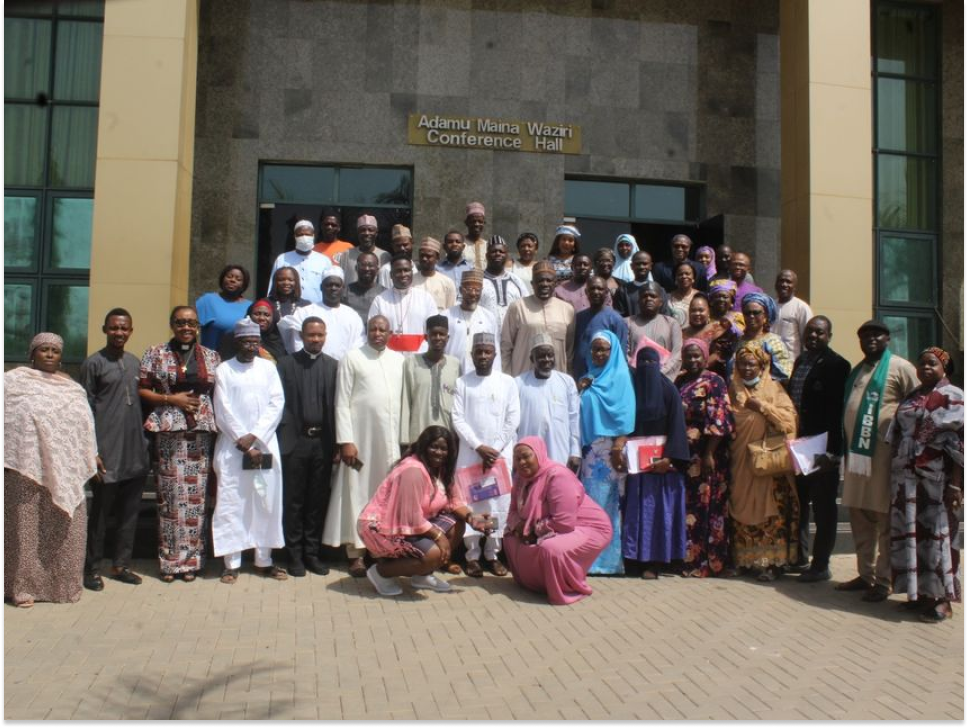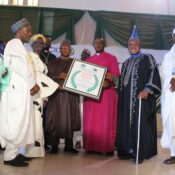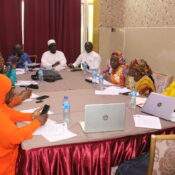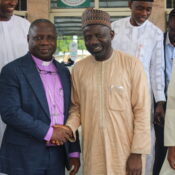
WORKSHOP ON PROTECTION OF HOLY SITES
Interfaith Dialogue Forum for Peace (IDFP) through the support of International Dialogue Centre (KAICIID) organized and conducted a one-day training on Protection of Holy Sites with a view to providing a platform where representatives Religious Leaders, CSOs alongside other relevant stakeholders can discuss and share knowledge on the existing international frameworks for protection of holy sites and explore how the said frameworks can be adapted to the Nigerian context. The training brought together people of diverse ethno-religious background aimed at promoting awareness and acceptance of the United Nations Alliance of Civilizations (UNAOC) Plan of Action to safeguard religious sites among religious leaders and policy makers that have the ability to influence and ensure wide acceptance of the principle that Holy Sites should be safeguarded as havens for peace and reconciliation rather than targets of desecration and/or destruction during violent conflicts.
The training took place on the 15th of February 2022 and had in attendance over 190 online and on-site participants drawn from KAICIID, Christian Association of Nigeria (CAN), Federation of Muslim Women Association (FOMWAN), Nigerian Supreme Council of Islamic Affairs (NSCIA), Civil Society Groups, Youth Wing Of CAN, NACOMYO, WOWICAN and IDFP.
The key topics covered during the one-day training comprises of perspectives on protection of Holysites in Africa and Linkage with AU Agenda 2063, protection of holy sites;tools and best practices for actors and communities, Nigeria’s experience on protection of holy sites; role of religious leaders and communities -islamic perspective and Nigeria’s experience on protection of holy sites; role of religious leaders and communities -christain perspective.
The training exposed participants with skills to promote the acceptance of the Plan of Action to safeguard religious sites, create a platform where experts can identify strategies, as well as entry points to address issues of destruction and desecration of scared places in Nigeria and the implication for conflict, set the basis for the development of a coherent and effective national policy response to the Protection of Holy Sites in Nigeria and increase knowledge of the processes that can lead to future conflict between Muslims and Christians so as to respond to current and future challenges of insecurity.
In their separate remarks, the Co- Chairmen, expressed their sincere gratitude to the timely initiative of the project as the platform has provided the opportunity to expand and explore in interfaith spirit. They expressed their satisfaction and promised to reject those who falsely and maliciously invoke religion to build misconceptions to fuel division, spread fear and hatred which instigates the destruction of holy sites. They encouraged all groups present to collaborate in unity to step up/cascade this training to their various hierarchy so as to stamp out discrimination and incitement and also have the responsibility to promote peaceful coexistence.
Objectives
The objective of the workshop/webinar is to provide a platform where representatives, religious leaders, CSOs alongside other relevant stakeholders can discuss and share knowledge on the existing international frameworks for protection of holy sites and explore how the said frameworks can be adapted to the Nigerian context. Specifically, to:
- To promote the acceptance of the Plan of Action to safeguard religious sites.
- To create a platform where experts can identify strategies, as well as entry points to address issues of destruction and desecration of scared places in Nigeria and the implication for conflict.
- To set the basis for the development of a coherent and effective national policy response to the Protection of Holy Sites in Nigeria.
- To increase knowledge of the processes that can lead to future conflict between Muslims and Christians so as to respond to current and future challenges of insecurity.
- Public endorsements of the Plan of Action to safeguard religious sites by the paramount high level religious leaders
- Increased knowledge of religious leaders regarding the existing international frameworks for protection of holy sites
- Development of strategies for implementation of the Plan of Action in the Zonal areas of Nigeria
- The formation of strategic partnerships and collaborations aimed at implementing the identified strategies on Protection of Sacred Sites.




